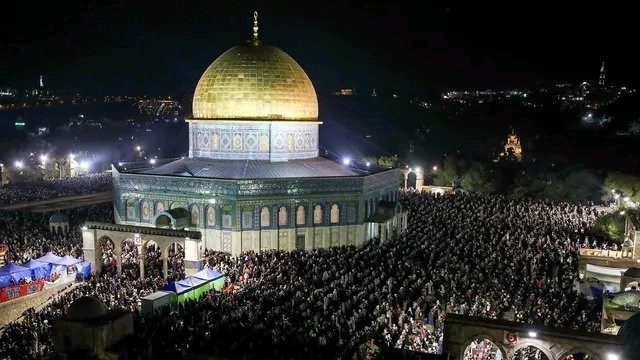Israel will keep the Temple Mount accessible during Ramadan, showcasing a commitment to religious freedom against a backdrop of conflict.
Israel will maintain access to the Temple Mount during the first week of Ramadan, mirroring the policy of previous years, Prime Minister Benjamin Netanyahu’s office declared on Tuesday. This decision comes amid heightened tensions due to the ongoing conflict with Hamas and contradicts the stricter access controls sought by National Security Minister Itamar Ben Gvir. Netanyahu’s stance underscores a commitment to religious freedom and security amidst a volatile backdrop.
Background of the Decision
The announcement from Netanyahu’s office followed a series of meetings with top security officials, highlighting the complex dynamics at play. The Temple Mount, a site of profound religious significance for both Jews and Muslims, has been a focal point of Israeli-Palestinian tensions. Netanyahu emphasized Israel’s longstanding policy of ensuring freedom of worship, particularly during the sacred month of Ramadan, despite the ongoing war against Hamas in the Gaza Strip. This stance reflects an effort to balance religious rights with security concerns, a challenge exacerbated by the recent surge in hostilities.
Security Assessments and Divergent Views
Ahead of the decision, there was notable division among Israeli security officials regarding how best to manage access to the Temple Mount. Reports indicated a preference among some officials to avoid restrictive measures that could incite further unrest, advocating instead for allowing the maximum number of worshippers the site can accommodate. However, Police Commissioner Kobi Shabtai proposed more stringent limits, particularly targeting younger Arab Israelis and East Jerusalem residents. Ben Gvir’s position, favoring severe restrictions, highlights the tension between security concerns and the principle of religious freedom.
Reactions and Implications
The decision has sparked a mix of responses, with Ben Gvir criticizing the move as endangering Israeli citizens and potentially projecting an image of victory for Hamas. In contrast, Mansour Abbas of the Islamist Ra’am party welcomed the decision, urging the Arab public to pray and observe Ramadan while respecting law and public order. This divergence in views underscores the broader debate over how Israel navigates its security challenges while upholding fundamental freedoms. The situation remains fluid, with the potential for evolving security assessments as Ramadan progresses.
As tensions simmer, Netanyahu’s decision to uphold traditional access to the Temple Mount during Ramadan reflects a delicate balancing act. It aims to preserve religious freedoms in the face of security threats, a stance that will be closely watched in the weeks to come. The broader implications for Israeli-Palestinian relations and the ongoing conflict with Hamas remain uncertain, underscoring the complexities of governance and security in a region marked by deep-seated divisions and enduring strife.






